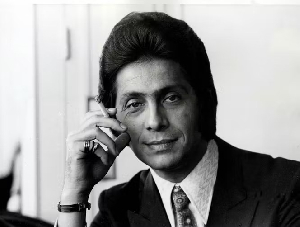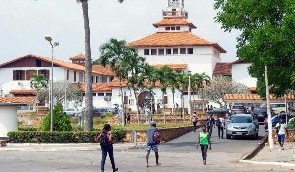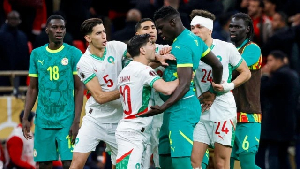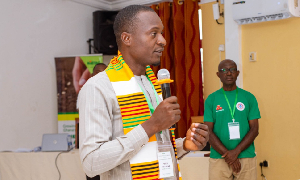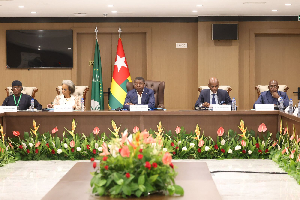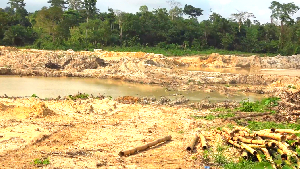Fate of Ghana’s Education System: National Agenda Needed!
By Joe Kingsley Eyiah, Brookview Middle School, Toronto-Canada
The apparent frustration faced by students of the Senior High School (SHS) in Ghana as a result of the ‘unnecessary’ changes in the duration of the high school education from 3 years to 4 years and back to 3 years on the political whims of NPP and NDC governments, calls for a NATIONAL AGENDA on our Education System.
Granted the fact that education is one of the most important tool for national development it becomes the responsibility of any progressive government anywhere to provide and promote sound educational policies as well as infrastructure that will help its people to acquire knowledge, skills and attitudes that enable them to develop their potentials. We need an acceptable NATIONAL EDUCATION POLICY to guide which political party that comes to power in Ghana in administering education as a cornerstone of national development!
It is regrettable to note that our dear country, Ghana, since the overthrow of the first President, Osagyefo Dr. Kwame Nkrumah in 1966, have- had to suffer from educational policies ‘koshwiako’ due to political whims and caprices of successive governments. There have been major education reforms over the years yet the experimentations in our education system based on party politics and unchartered political ideologies continue unabated. The immediate victims of such ‘unnecessary’ experimentations are students in general, and of late, students of our Senior High Schools in particular!
Though a new education committee under Professor Kwapong was appointed immediately after the overthrow of Dr. Kwame Nkrumah to fix the weakness in Ghana’s education, at the close of the 1970s, Ghana’s education could only be described as “decayed” and needed organic rejuvenation. The decay was a result of political instability with its resulting poor management, corruption, and general macroeconomic turmoil (Mfum-Mensah, 1998).
By the 1980s, Ghana’s education system had become dysfunctional. Serious challenges confronted it. In 1988, the military government of Jerry John Rawlings implemented broad reforms that touched all levels of the education system (except early childhood education) and attempted to address the recurring issues affecting the system. The reforms reduced pre-university education in the country from 17 years to 12 years (six years of primary, three years of junior secondary-JSS and three years of senior secondary-SSS-presently known as Senior High School education). There was also national literacy campaign through non-formal education for school dropouts and adult learners. The civilian government of Ghana under President J.J. Rawlings in 1996 implemented the Free Compulsory Universal Basic Education (fCUBE). This was specially designed to focus on basic education access and quality through improving the quality of teaching and learning, efficiency in management and, increasing access and local participation.
Rawlings handed over government to J. A. Kufuor in 2001. President Kufuor also came up with some education reforms which included the increase an increase in Senior High School duration from 3 years to 4 years and national school feeding program. Unfortunately, very little has been achieved in the light of all these reforms, especially for those living in rural communities.
The rapid development notwithstanding education practices in northern Ghana present one of the many education inequalities and disparities of the system of education that the country inherited from the colonial powers. Educational development in the north is very recent compared to the south. In addition, people in northern Ghana are underserved by the nation’s educational system. The area has few schools when compared to number of children of school going age. The northern area also has high pupil to teacher ratio, most of the teachers who are recruited lack pre-service training, and the state of school infrastructure in that part of the country is comparatively poor.
I postulate in the light of the foregoing fact of ‘education’ injustices as far as the distribution of educational resources (eg. Classrooms, libraries, teachers) are concerned in Ghana that, the cost-effective policy of reducing the four-year duration of Senior High education by the present government (NDC) as established by the NPP government about 6 years ago back to three-year duration is very disturbing to our education system! Now we have graduates of both the four-year SHS system and the three-year SHS system passing out at the same time this year. The consequences of such unprecedented number of high students flooding the Ghanaian education system are obvious. What a mess caused by political selfishness of the two main political parties-NDC and NPP in Ghana!
Since Kwapong’s Committee, there have many other committees on Ghana’s education reforms. Have all these committees been partisan in nature? Have they always missed the NATIONAL AGENDA for education in Ghana? I think we need one now!
.
Opinions of Wednesday, 5 June 2013
Columnist: Eyiah, Joe Kingsley
Fate of Ghana’s Education System
Entertainment
